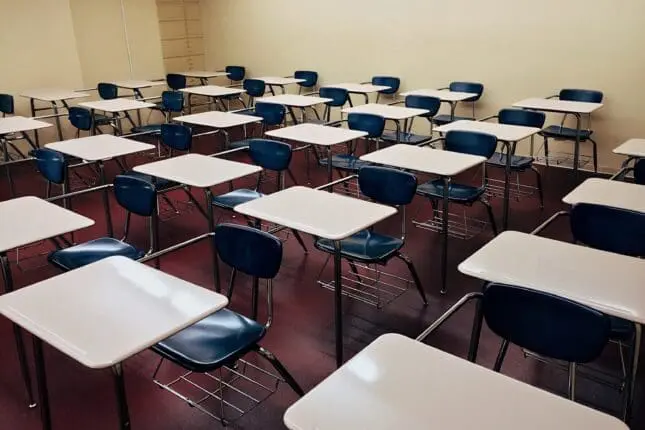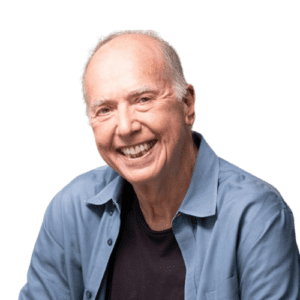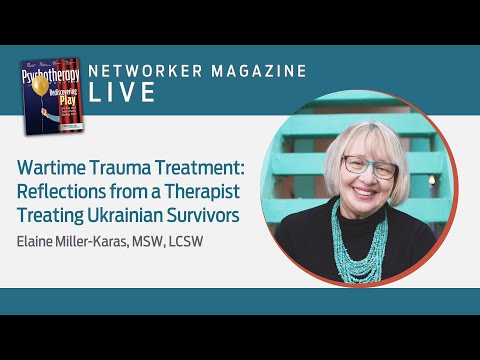Not long ago, Russian President Vladimir Putin strode through the rubble of Mariupol, where his armies had slaughtered hospitalized children and other vulnerable noncombatants. It was as nauseating as it was terrifying.
There’s a dark resonance between Russia’s merciless attack on Ukraine and recent mass murders in the United States: of Black shoppers in Buffalo, patrons at an LGBTQ+ club in Colorado Springs, elementary school students and teachers in Uvalde, Asian Americans in Monterey Park and Half Moon Bay, elementary school children in Nashville, and shoppers at a mall in Allen, Texas.
I experience these killings as a miasm, spreading darkly across our planet, with ravenous perpetrators, emerging like the furious figures in Goya’s Disasters of War. These lethal attacks on blameless children and adults are also assaults on innocence, and on people’s futures.
In Ukraine, where I’ve been working with local partners to create a nationwide program to heal pervasive psychological trauma, the effects of murderous hatred are everywhere. I see it in the language Putin uses to mobilize his troops. He says that Ukrainians are “Nazis” and “fascists,” “vermin” and “insects.” In the eyes of Putin and his supporters, opposing Ukrainians is a patriotic act, necessary to appropriate land they claim is theirs, to obliterate Ukrainians’ “corrupt” culture and language, and to exterminate anyone who gets in their way.
The attacks on Ukrainian families, children, and elderly are an obvious manifestation of this hatred. The Ukrainian government reports that since last February more than 2,700 educational institutions have been bombed (337 of which have been completely destroyed) and over 800 medical facilities have been damaged. Weeks ago, a Russian missile demolished an apartment building in Dnipro, killing more than 40 Ukrainians, including children. When Russian troops kidnap thousands of Ukrainian children and resettle them in distant Russian regions, they’re stealing Ukraine’s future. Murders and rapes—in the Kyiv suburbs of Bucha and Irpin, in Kharkiv and Kherson, and in Mariupol—traumatize their victims and, in the minds of the perpetrators, implant Russian DNA and override Ukrainian heredity.
The propaganda of American white supremacists and white nationalists closely mirror Putin’s own. They play on the same fears of contamination by dangerous “others,” who would “replace ‘normal’ white people,” and project their enraged resentment on society’s most vulnerable. They consider Blacks, Asians, Jews, Muslims, and gender-nonconforming people subhuman. They talk about illegal immigrants being a danger at the ballot box, about Black and queer people being threats.
The motives of American men who kill children in our schools may be more opaque than those of Putin, or white supremacists, or murderers of minorities, but they seem possessed by a similar fear and hatred of the vulnerable—and, I believe, of their own vulnerability. They appear intoxicated by a noxious brew of insecurity and grandiosity, and an unchecked need to project their own hatred.
Researchers often group these shooters into three categories: the psychotic, whose motives and actions are driven by delusion; the sociopaths, who are numb and indifferent to others’ pain; and the long-abused, who wound and abuse others even more vulnerable than them. There are, however, common threads. Virtually all of these shooters are young men, 18-22 years old, who feel cut off from satisfying relationships, and without meaning and purpose. From an early age, many have displaced their resentment on the vulnerable.
Many, I imagine, feel, that like Putin and white supremacists, they’re on a world-saving mission. Uvalde shooter Salvador Ramos, like Putin, was determined to deny a future to those he believed would corrupt his. Whatever the source of these shooters’ delusional hatred, it’s often compounded by self-loathing. In annihilating the future of classmates or young children, they offer themselves up as companion sacrifices, killed by the authorities or imprisoned for life. Not only are they annihilating others’ futures, but their own as well.
Perhaps this same self-destructive force is at work in Putin, who reportedly ignored any advisors who informed him of the Ukrainians’ fighting abilities or resilience. School shooters expect retribution. Putin invites it.
Ending these wars against the innocent presents an opportunity for collective healing. The innocent who’ve suffered can be our teachers. As they grieve their losses and process their pain, many experience a wider sense of connection to and responsibility for other people and the world: they experience what psychologists call “post-traumatic growth.” They find fulfillment in bringing their wisdom and compassion to others.
In 2012, Scarlett Lewis’s six-year-old son, Jesse, was murdered at Sandy Hook Elementary School, along with 26 others. Afterward, Scarlett created the Jesse Lewis Choose Love Movement. Ten thousand schools now use the movement’s teachings to address the isolation that some students feel, which can breed alienation, hate, and violence. In Ukraine, many people, including the hundreds my CMBM colleagues and I are training, are also finding new connection with others in their communities, and setting aside long-standing resentments and political, class, and age differences to support and care for one another.
It’s time for all of us to let ourselves feel the pain of these crimes, instead of ignoring it. In doing so, perhaps we can foster an appreciation of vulnerability and bring more wisdom and compassion to our political action and social policies—and to our own lives.
Photo by Pixabay/Pexels
James Gordon
James S. Gordon, MD, is a psychiatrist, the founder and CEO of The Center for Mind-Body Medicine, and the author of Transforming Trauma: The Path to Hope and Healing. He is a Clinical Professor of Psychiatry and Family Medicine at Georgetown Medical School and chaired the White House Commission on Complementary and Alternative Medicine Policy. His work with war-traumatized children in Gaza and Israel, both of which he has visited 20 times, has been featured on 60 Minutes in 2015, as well as in The New York Times and The Washington Post.













